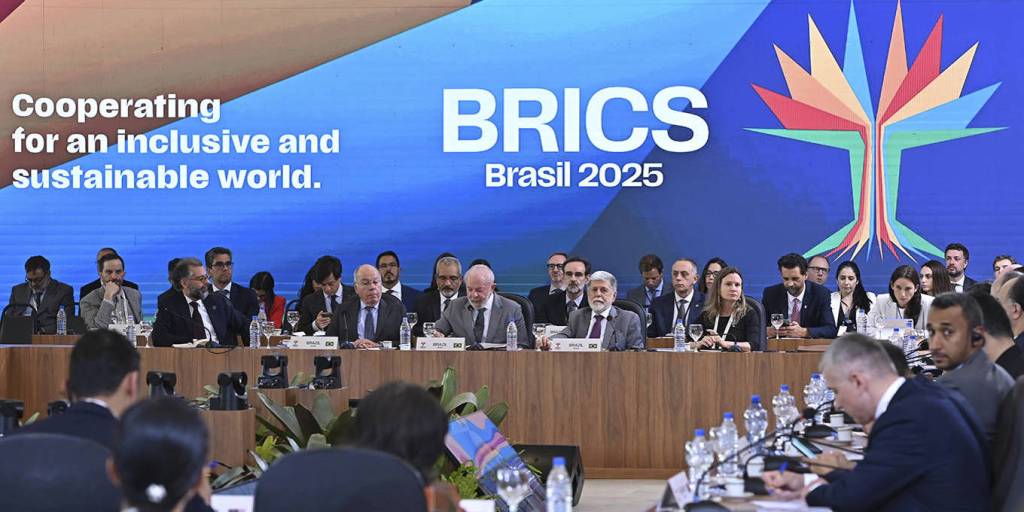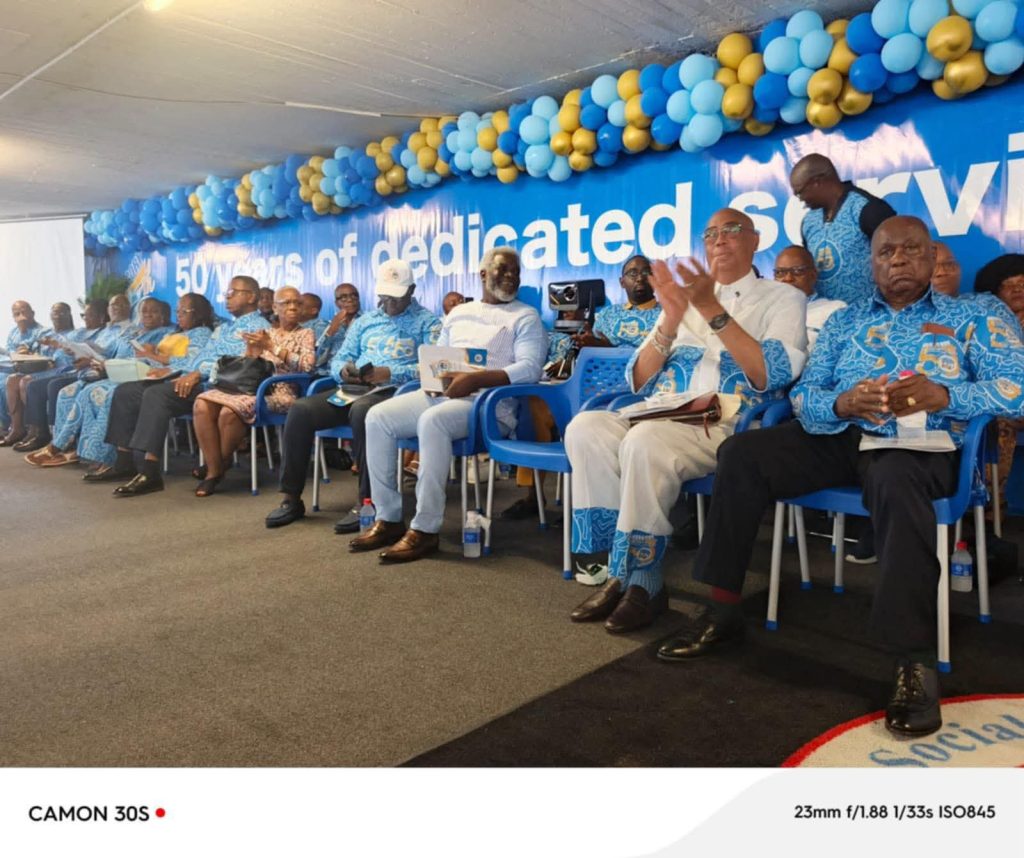BRICS Africa partnership represents a crucial strategic opportunity to accelerate Africa’s development by addressing energy and debt crises collaboratively.
By helping Africa address the energy and debt crises standing in the way of its development, BRICS+ members could advance their vision of a world where all countries are respected and work together to solve common problems.

The ten current BRICS+ members, more than most countries, can empathize with the economic and political injustices that Africans have experienced over the years. Many of them, including the continent’s three members – South Africa, Egypt, and Ethiopia – are all too familiar with the disastrous effects of colonialism and exploitation, the difficulty of creating prosperity for millions of people while shouldering an unsustainable debt burden, and the inequality built into the global financial system.
These links have helped foster a closer relationship between BRICS+ members and African countries over the last two decades. For the past 15 years, China has been Africa’s largest trading partner, with annual turnover now estimated at $295 billion. The continent’s trade with other BRICS+ members has also increased, reaching $83 billion with India in 2024, and more than $21 billion with Brazil in 2023.
These relationships have pushed many African countries toward industrialization. But only South Africa, Egypt, and Morocco have developed any significant amount of industrial power. For the rest of the continent, three major obstacles stand in the way: a huge energy gap, unsustainable debt burdens, and worsening climate change. To overcome these barriers, Africa must develop a strategic partnership with the BRICS+. This partnership would yield other mutually beneficial results, including economic growth and shared prosperity.
The timing is right. More than ever before, Africa is facing growth pressures as evidenced by its exploding working-age population. The BRICS+ bloc is also at a crucial point as it seeks to assert itself on the world stage, develop a new form of multilateralism based on mutualism, expand the New Development Bank, and admit more members. The group is attempting to do all this while navigating delicate relations with the United States.
A strategic partnership with Africa would allow the BRICS+ bloc to advance its vision for a world where all countries are respected and work together to solve common problems and pursue green development. But to drive growth, its members will need to become co-investors, rather than merely creditors. They must also help African countries address the obstacles to their development, particularly the energy and debt crises.
To that end, China, one of the most powerful BRICS+ members and the world’s clean-energy leader, could help Africa harness its abundant renewable-energy potential. The continent is home to 60% of the best solar resources globally, but only 1% of installed solar capacity. By contrast, 64% of all renewable-energy capacity added last year was installed in China, which accounts for 60% of the world’s production capacity in green-tech sectors and dominates solar supply chains. As part of a strategic partnership with Africa, China and other BRICS+ countries could co-establish clean-tech manufacturing and assembly plants on the continent. This would create new markets for renewables while also lowering energy costs for Africans.
There is also the question of debt relief. Sovereign-debt restructurings have been inefficient and ineffective because powerful bilateral and multilateral creditors can’t agree on how to handle them. Improving these processes requires political goodwill. China has shown that this is possible by forgiving $3.4 billion in African debt, as well as 23 interest-free loans for 17 African countries.
Moreover, BRICS+ countries could oversee the creation of a multilateral framework, tailored to low-income countries, that would aim to convene all creditor classes, including private bondholders and multilateral development banks. This would also facilitate market creation and foster geopolitical ties between the bloc’s members and African countries – the foundations of a prosperous future for all.
With the right strategic partners, Africa could become very wealthy in a short period of time. The BRICS+ bloc must begin laying the groundwork for this geopolitical and economic alliance with the continent at its upcoming summit in Rio de Janeiro. Brazil, as the current president, and South Africa, as the group’s first African member, must ensure that an African partnership is at the top of the agenda.
From a practical point of view, deepening cooperation with African countries would create future economic benefits for BRICS+ members. But perhaps more importantly, it would signal the group’s willingness to provide equitable opportunities to the broader Global South.
Ameenah Gurib-Fakim, the first female president of Mauritius, is a member of the African Leaders Debt Relief Initiative. This op-ed article was originally published in Project Syndicate, African Newspage’s publishing partner. The views it expresses do not necessarily reflect African Newspage’s editorial policy.
The post OP-ED | The BRICS+ Should Not Miss the Africa Opportunity, By Ameenah Gurib-Fakim appeared first on African Newspage | Reporting Africa’s Development.
BRICS Africa partnership: Driving Clean Energy Adoption
The BRICS Africa partnership has the potential to transform Africa’s energy landscape by harnessing renewable resources. China’s leadership in solar technology, combined with BRICS+ support, can facilitate clean energy projects, reducing costs and increasing access across the continent. This cooperation helps tackle the energy gap that hampers industrialization and economic growth.
For more on Africa’s renewable energy prospects, see our related coverage here. International agencies like the International Renewable Energy Agency (IRENA) support these efforts with data and frameworks.

BRICS Africa partnership: Overcoming Debt Challenges Together
Addressing unsustainable debt is a cornerstone of the BRICS Africa partnership. Coordinated debt relief and restructuring led by BRICS members can provide African countries with fiscal space to invest in development priorities. China’s debt forgiveness initiatives set a precedent for constructive engagement.
Discover more about debt restructuring in Africa at Voice Mauritius News and insights from the African Newspage official site.

BRICS Africa partnership: Strengthening Industrial Growth
Through the BRICS Africa partnership, African nations can build industrial capacity by attracting investments and technology transfer. South Africa, Egypt, and Morocco’s industrial advances demonstrate the benefits of such collaborations. Expanding manufacturing and assembly plants for clean technology can generate jobs and boost economic diversification.
For detailed industrial strategies, visit our internal link: Africa Industrial Growth.

BRICS Africa partnership: Promoting Sustainable Development Goals
The BRICS Africa partnership aligns closely with the UN Sustainable Development Goals (SDGs), particularly in poverty alleviation, clean energy, and economic equality. By fostering equitable partnerships, BRICS+ members contribute to Africa’s sustainable and inclusive growth.
Learn about SDG progress in Africa from United Nations SDG Africa.

BRICS Africa partnership: Expanding Geopolitical Influence and Cooperation
The BRICS Africa partnership also represents a strategic geopolitical alliance, enhancing Africa’s voice in global affairs while expanding BRICS+ influence. This collaboration fosters multilateralism based on mutual respect and shared interests, essential for a balanced global order.
Explore geopolitical dynamics further at Voice Mauritius News – Geopolitics.

Source: African Newspage Official Website




